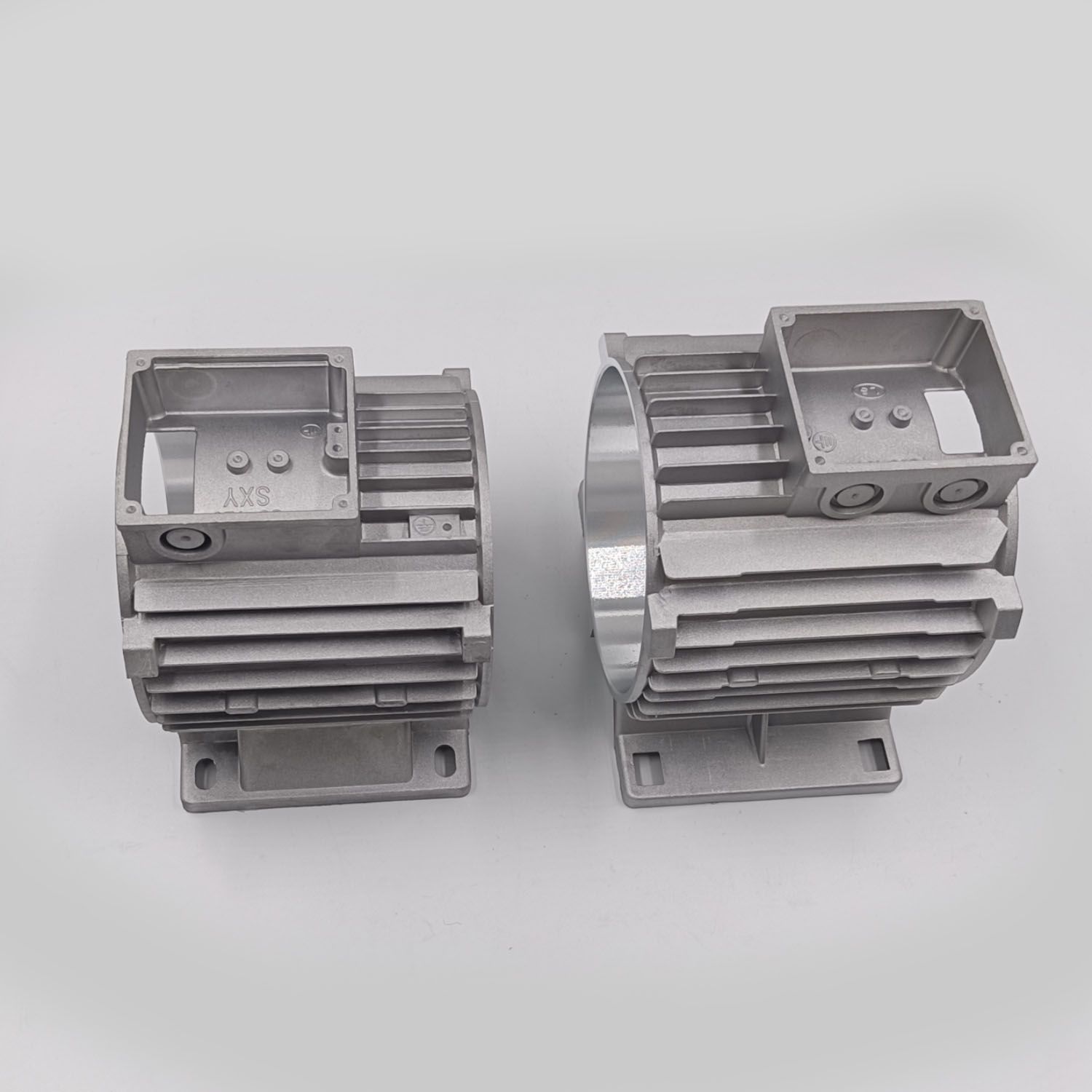Getting My Alcast Company To Work
Getting My Alcast Company To Work
Blog Article
Our Alcast Company Diaries
Table of ContentsIndicators on Alcast Company You Need To KnowThe Ultimate Guide To Alcast CompanyThe smart Trick of Alcast Company That Nobody is DiscussingAlcast Company Things To Know Before You BuyThe Main Principles Of Alcast Company The Basic Principles Of Alcast Company
Chemical Contrast of Cast Aluminum Alloys Silicon promotes castability by reducing the alloy's melting temperature level and boosting fluidness throughout spreading. Additionally, silicon contributes to the alloy's strength and use resistance, making it beneficial in applications where sturdiness is crucial, such as vehicle components and engine elements.It also enhances the machinability of the alloy, making it less complicated to refine into finished items. In this method, iron contributes to the overall workability of aluminum alloys.
Manganese adds to the toughness of light weight aluminum alloys and enhances workability (aluminum casting manufacturer). It is frequently used in functioned light weight aluminum products like sheets, extrusions, and accounts. The visibility of manganese help in the alloy's formability and resistance to cracking throughout fabrication processes. Magnesium is a lightweight aspect that gives toughness and impact resistance to light weight aluminum alloys.
A Biased View of Alcast Company
It allows the production of light-weight components with exceptional mechanical homes. Zinc improves the castability of light weight aluminum alloys and helps manage the solidification procedure during casting. It boosts the alloy's strength and solidity. It is typically found in applications where complex forms and fine information are needed, such as decorative spreadings and specific auto parts.

The primary thermal conductivity, tensile stamina, yield stamina, and prolongation vary. Amongst the above alloys, A356 has the highest possible thermal conductivity, and A380 and ADC12 have the most affordable.
10 Simple Techniques For Alcast Company

In precision spreading, 6063 is well-suited for applications where complex geometries and top notch surface area coatings are extremely important. Instances include telecommunication units, where the alloy's superior formability permits streamlined and visually pleasing layouts while maintaining structural stability. In the Lighting Solutions industry, precision-cast 6063 components produce sophisticated and reliable lights fixtures that need elaborate forms and excellent thermal efficiency.
It leads to a finer surface coating and far better deterioration resistance in A360. The A360 displays remarkable prolongation, making it excellent for complex and thin-walled components. In precision casting applications, A360 is appropriate for markets such as Customer Electronic Devices, Telecommunication, and Power Tools. Its improved fluidity permits complex, high-precision components like smartphone casings and communication device real estates.
Not known Facts About Alcast Company
Its unique buildings make A360 a valuable option for precision spreading in these markets, boosting item durability and high quality. Foundry. Aluminum alloy 380, or A380, is an extensively made use of spreading alloy with several unique features.
In accuracy spreading, light weight aluminum 413 shines in the Consumer Electronic Devices and Power Devices industries. It's frequently made use of to craft complex parts like mobile phone real estates, camera bodies, and power device coverings. Its precision is remarkable, with tight tolerances as much as 0.01 mm, making sure perfect product assembly. This alloy's superior rust resistance makes it an exceptional option for outdoor applications, guaranteeing long-lasting, sturdy items in the stated markets.
The Ultimate Guide To Alcast Company
Once you have chosen that the aluminum die casting procedure appropriates for your task, a crucial next action is making a decision on one of the most suitable alloy. The light weight aluminum alloy you choose will considerably impact both the casting procedure and the residential properties of the final product. Due to this, you should make your choice meticulously and take an informed method.
Identifying the most appropriate light weight aluminum alloy for your application will certainly indicate considering a wide variety of features. These relative alloy characteristics comply with the North American Die Spreading Association's standards, and we have actually separated them into 2 groups. The first classification addresses alloy qualities that impact the manufacturing procedure. The 2nd covers characteristics affecting the properties of the end product.
The 3-Minute Rule for Alcast Company
The alloy you choose for die spreading straight influences a number of aspects of the casting procedure, like just how simple the alloy is to work with and if it is look at this web-site vulnerable to casting problems. Warm splitting, likewise called solidification fracturing, is a regular die casting issue for aluminum alloys that can cause internal or surface-level splits or cracks.
Specific aluminum alloys are a lot more susceptible to hot fracturing than others, and your choice needs to consider this. Another typical issue found in the die spreading of light weight aluminum is die soldering, which is when the actors stays with the die wall surfaces and makes ejection tough. It can damage both the cast and the die, so you need to search for alloys with high anti-soldering homes.
Deterioration resistance, which is currently a significant characteristic of light weight aluminum, can differ significantly from alloy to alloy and is an important particular to consider depending on the environmental problems your item will be revealed to (aluminum casting manufacturer). Put on resistance is another home commonly looked for in light weight aluminum products and can set apart some alloys
Report this page